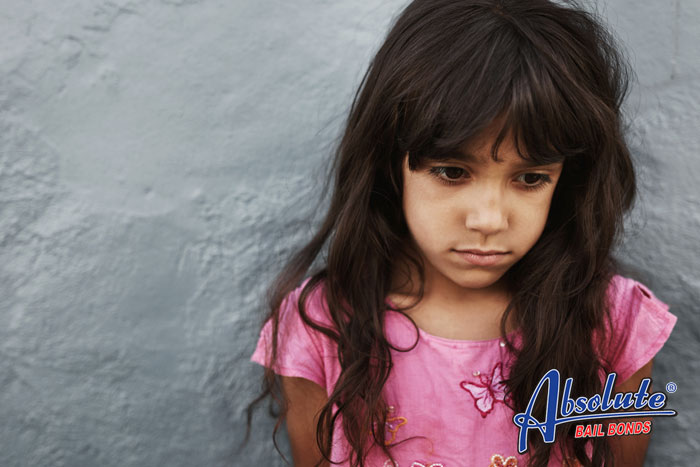
What is Statutory Rape? Statutory Rape Laws and Charges
Teenagers are full of two things. Hormones and emotions. The combination causes them to make questionable life choices, which includes engaging in sex. When parents learn that their teenage child has become sexually active they often find themselves worrying if their child can be charged with statutory rape.
Recent changes to California’s laws about sex with minors have made the issue even more confusing than it is in some other states.
What is Statutory Rape?
Strictly speaking, statutory rape has nothing to do about sexual consent. In statutory rape cases, both parties are usually willing. These cases aren’t about the willingness of both partners but whether they’re able to cope with the emotional and physical ramifications that go hand in hand with a sexual relationship.
According to the law, statutory rape takes place when someone has sex with a minor, who is otherwise referred to as a person who hasn’t reached the age of consent.
Is it Possible for a Minor to be Charged with Statutory Rape?
The question of whether it’s possible for two minors to be accused of statutory rape doesn’t have a clear legal answer.
According to California Penal Code Section 261.5, statutory rape takes place whenever someone has sex with someone who hasn’t reached their eighteenth birthday. According to that, if a sixteen-year-old couple decides to have sex, both of them can be charged with statutory rape.
The problem is that for the charges to stick, the court has to determine which member of the couple is the victim and which is the aggressor, something that’s nearly impossible to do when both are minors. Due to the legal complexities of the situation, the charges are usually dropped and the court lets the parents decide how to handle the matter.
Penalties for Statutory Rape in California
Statutory rape charges in California are a serious matter. Statutory rape is one of the state’s many famous wobbler offenses. No two cases are handled the same way, which can make it difficult to guess what the final results will be. The most extreme cases can result in a sentence that includes 3 years in jail as well as a $10,000 fine.
Sometimes the court requires that the defendant register as a sex offender, but there are also situations where that hasn’t happened. It largely depends on the age of the two people involved in the case as well as the type of relationship they’re engaged in.
The best way to make sure you never have to unravel the complexities of statutory rape is by making sure your sexual partner is always over 18 years old.

The Long-Lasting Consequences of Drunk Driving in California
Like all other states, California has taken a hard stance on drunk driving. It isn’t tolerated. If you’re caught behind the wheel after having just a little too much to drink, you’ll face steep consequences that will have a major impact on the overall quality of your life.
California’s Legal Limit
California has different legal limits for different types of drivers. For the average, adult driver in California, anything over a blood alcohol count (BAC) of 0.08% is considered too high to legally drive. Drivers who haven’t reached their 21st birthday, anything over 0.05% is considered a DUI. Commercial drivers as well as drivers who are involved with a ride-share program aren’t allowed to get behind the wheel if their BAC is above 0.04%
If you are pulled over and the officer believes you’ve been drinking, they’ll likely administer a breath test that measures your BAC. If the BAC is considered close, but not quite at the legal limit, it’s likely you’ll still be arrested. The reason for this is because it can take a little time for the true BAC to be accurate. You’ll receive a second test at the jail. By this point, the BAC level will be accurate. If it’s above the legal limit, the officer will go through with the arrest. Both of the BAC tests are admissible in court. In many cases, the first test is a breath test and the second test is taken via a blood draw.
Penalties of Driving Drunk in California
California lawmakers aren’t playing around when it comes to drunk drivers. The penalties are steep and were designed to scare people into only getting behind the wheel while they’re sober. The penalties become more severe each time you’re charged with a DUI.
First Offense
The first time you’re caught driving while under the influence, the maximum amount of time you can spend in county jail is six months. You’ll also be charged fines that will range from $390-$1,000. Your license will be suspended and you won’t be able to drive for up to six months. Your ignition can be locked for 6 months to one full year, and you’ll only be allowed to drive on a restricted license during that time.
Second Offense
The second DUI charge means a minimum of 92 hours and a maximum of 1 full year in a county jail. The court can charge you fines that range from $390-$1,000. You can lose your license for a full two years, making it difficult to work, especially if you live in a rural area. After you get a restricted license, the court can limit your driving with an ignition lock that will remain on your vehicle for up to one year.
Third Offense
The third time you’re found guilty of DUI charges, you’ll be sentenced to as little as 120 days or as long as one year in jail. You’ll get charged at least $1,800 in fines. You’ll also lose your license for 3 years and potentially have an ignition lock installed on your vehicle for an additional 2 years.
California lawmakers have arranged things so that each DUI conviction remains on your record for a full 10 years.
In addition to actual DUI penalties, if you were in an accident while driving drunk, you will also face any charges that were incurred during the accident. This can include minor traffic offenses or vehicular manslaughter.
Medications Can Mess up Your Life
There are several medications that can play havoc on your body when you mix them with alcohol. The problem with many medications, even some over-the-counter allergy medications is that they alter the way your body absorbs alcohol. This means that if you go to the bar and have your normal amount of alcohol, and the amount that in most cases allows you to legally drive home, the medication could have created a significantly higher blood alcohol level and you’ll be arrested for DUI. Several people have had their lives destroyed because they didn’t realize how badly the medication and alcohol would react.
If you’re on medication, it’s in your best interest to not get behind the wheel if you have accidentally mixed the alcohol and the medication. Call a friend, get a room, hire a taxi. Do anything other than getting in your car.

The Reality of Prop. 25
The November third election is a big one for California voters. Not only do they have to decide which candidate they want in the Oval Office, they also must decide if they want to vote for or against, Proposal 25.
What is Proposal 25
The goal of Prop 25 is to end the current cash bail system. If it passes, California would be the first state to do away with this system. Instead of using a tried and true cash bail system, the state would create a system that would run a “risk-assessment” on suspects. Each suspect would be assigned a risk which would categorize them as:
- Low-risk
- Medium-risk
- High-risk
Low-risk suspects would be individuals that, based solely on a generic test, would be determined a low-risk for not appearing in court and who were deemed a minimal risk to society. They would be promptly released from jail.
On the other hand, someone who is considered high-risk might not show up for their court dates and they’re deemed a threat to society. These individuals would not be released. Eventually, high-risk individuals would get a few moments before a judge, at which point they’d be allowed to explain why the high-risk assessment is unfair.
Individuals who fall into the medium-risk category pose a problem. They might or might not appear in court. And they might, in the right circumstances, be a threat to society. It’s not entirely clear how the courts would be expected to deal with medium-risk individuals, other than some lawmakers stating that cases would depend on the local court’s rules.
Individuals who have been charged with misdemeanors would be exempt from the risk exceptions, though lawmakers are quick to point out that there will be exceptions.
The Problem with Prop 25
At first glance, Prop 25 doesn’t seem like a bad idea. It has the potential to provide individuals with limited income who have created minor offenses with the ability to get out of jail. That’s a good thing, right? Maybe not.
First, even low-income individuals do have the opportunity to be released from jail. If they don’t have the money needed to bail themselves out, they can contact local family-owned businesses like Absolute Bail Bonds where they can take advantage of flexible payment plans that include zero% interest, 20% discounts, and low-payments.
The biggest problem with Prop 25 is that it doesn’t appear that anyone has a good way to run the risk assessments. Fans of Prop 25 haven’t been able to provide much information about how the assessments will be run or how they’ll be evaluated.
The current system provides the court to look closely at each person’s criminal and community history. This information is used to determine how much money is needed to convince the person to stay out of trouble and attend all of their court appearances. The fact that bail can be revoked if the person does violate the terms of their release by engaging with certain people, leaving town, or committing a crime provides further incentive for everyone to walk the straight and narrow path while they wait for their case to reach its conclusion.
The biggest concern with Prop 25 is that while fans of the proposed law are convinced it will work, they’re unable to provide any detailed information about how the risk assessment will be conducted. When you read the bill, all it says is that the risk assessment will use “tools shall be demonstrated by scientific research to be accurate and reliable.”
That sounds a lot like the type of system internet dating sites use, and everyone who has used one of those sites knows that while love matches are possible, most of the connections are massive duds. Does anyone really want to have a bail system that has the same kind of success rate as the average internet dating service?

False Allegations of Child Abuse in California
Child abuse laws are designed to protect children from being hurt. They’re good laws that make a lot of sense. Unfortunately, they are also laws that can be used against people, particularly parents who are engaged in a child custody dispute. It’s not unheard of for one parent to accuse the other parent of child abuse in order to obtain full custody of the children. It’s an accusation that can deal a lasting blow to both sides.
While there have been instances of men lodging false child abuse claims against women, it’s far more common for a woman to falsely accuse a man of child abuse. Data collected by the Stop Abusive and Violent Environments (SAVE) indicates that 85% of all child abuse protective orders are filed by men and issued against men. One lawyer estimates that approximately 90% of those that are filed during a divorce and that mention child abuse are a tactical move to gain custody of the children.
California’s family court judges are legally obligated to take all child abuse accusations seriously. The last thing anyone wants is for a child to be hurt because the court failed to act. As soon as one parent accuses the other of child abuse, the court will take action, usually siding with the parent who made the accusation. If you are the one accused of abusing children, you shouldn’t assume that you’re promptly out of luck. You do have to be willing to take a defensive stance.
It’s in your best interest to demand that the court investigate the accusations. Be prepared for this to involve an in-depth and invasive investigation into your background. Court-appointed experts will interview several people which can include:
- Your children
- Family
- Friendly
- Doctors
- Teachers
The process is time-consuming and often frustrating. When you feel impatient, remind yourself that you’re doing this for the good of your child.
The topic of false child abuse accusations in California is addressed in Family Code section 3027. According to the code, once it’s proven that the allegations filed against you were knowingly false, you have the right to seek monetary compensation for your court fees and additional costs that were connected to proving your innocence. The result of the investigation could lead to a significant change in which parent is granted custody of the children.

Mail Theft in California
Lawmakers aren’t fooling around when it comes to people messing with other people’s mail. The issue of mail theft is explored in US Code Section 1708. It’s important to understand that because mail theft involves the United States Postal Service, a federal agency, mail theft is considered a federal offense. The State of California will likely add a few charges as well.
What is Mail Theft
If you read US Code 18 Section 1708 you’ll learn that taking any piece of mail that wasn’t sent to you is considered mail theft. It doesn’t matter if the mail is taken directly from a post office employee, snatched from a mailbox, or snuck of a mail truck. It’s all mail theft.
Additional Offenses That Are Frequently Added to Mail Theft Charges
It’s rare for a person to be charged with just mail theft and nothing else. Identity theft is one the charge that’s most commonly linked to mail theft. Identity theft charges are usually added if the stolen mail included:
- Birthdates
- Social security numbers
- Birth certificates
- Tax I.D. numbers
- Banking/credit card account information
- Death certificate information
- School I.D. numbers
- Driver’s license numbers
Other charges that have been added to mail theft include:
- Assault
- Breaking and entering
- Embezzlement
- Deception
- Fraud
Federal Consequences of Mail Fraud
The government is messing around with mail theft. They want everyone to think twice about what they could lose before they snatch up a piece of unattended mail. If you’re found guilty of federal mail fraud, the maximum sentence includes:
- Up to $250,000 in fines
- Up to 5 years in a federal prison
Getting Charged with Mail Theft in California
California lawmakers are serious about mail theft. Anyone who is caught stealing someone else’s mail will likely find that in addition to dealing with the federal court, they’ll also be charged by the state. California’s Penal Code 530.5e PC states that “every person who commits mail theft, as defined in Section 1708 of Title 18 of the United States Code, is guilty of a public offense, and upon conviction therefor shall be punished by a fine, by imprisonment in a county jail not to exceed one year, or by both a fine and imprisonment.”
The interesting thing about California and mail theft is that it is one of the only theft type crimes where the punishment isn’t determined by the monetary amount of the crime. The state doesn’t care if you stole a couple of thousand dollars worth of mailed paychecks from your neighbor or if you simply swiped a handful of sales flyers from an unattended mailbag. The consequences will be the same.
What if Mail was Delivered to the Wrong Person?
If a postal employee delivers the someone else’s mail to you, don’t panic and assume that you’re going to be charged with mail theft. This is an honest mistake. It’s also something you need to take care of immediately. As soon as you discover the error, contact the post office, and alert them to the situation. You’ll be instructed on how to return the mail to the post office. What you shouldn’t do is throw the mail away or to put the mail in your neighbor’s mailbox.

Falling Asleep Behind the Wheel in California
We’ve all done it. Gotten behind the wheel and driven when we were tired. Most of the time rolling down the window, cranking up the radio, and indulging in a massive amount of caffeine is enough to get us safely where we need to be. The problem is that some people don’t make it to their destination. Some people fall asleep while they’re behind the wheel and find themselves in serious legal trouble.
The Dangers of Falling Asleep While Driving
People constantly warn us about driving while intoxicated. We know it’s dangerous and know that it’s a serious traffic offense. People rarely discuss the fact that driving while fatigued is equally dangerous. In most cases driving is monotonous. It’s so easy to let your eyes close for a second. That’s all it takes for us to fall asleep and get into a bad accident.
If you’ve ever driven while drowsy you’re not alone. The National Highway Traffic Safety Administration (NHTSA) reports that approximately 100,000 police-reported car accidents involved drowsy driving. It’s estimated that 72,000 of those accidents led to severe injuries and that 1,600 involved fatalities.
How California Handles Drowsy Driving Cases
Each time you get behind the wheel of your car, you’re entering into an unspoken, but legally binding contract with everyone that you’re fit for driving. Getting behind the wheel means that you plan on following all posted traffic laws, that you’ll stay alert, and that you’ll drive defensively. This means you won’t be distracted, you’re not intoxicated, and you’re not fatigued.
Failing to keep up your end of the agreement results in traffic tickets and possibly jail time.
If you’re caught driving while drowsy in California, at best, you’ll get a ticket for reckless driving. According to the state, you’re driving recklessly any time you, “drive any vehicle in a manner that exhibits willful or wanton disregard for the well-being of others on the roadway.” The state considers falling asleep and an example of willful or wanton disregard.
If you’re caught driving while drowsy, the best you can hope for is a traffic ticket that will cost you $145. That’s the best-case scenario. If you caused an accident, injured someone, created an intensely dangerous situation, or did a great deal of damage to someone else’s property, the consequences will be much more severe. The state has the option of sentencing you to 90 days in jail and charging you with a $1,000 fine.
Depending on your driving record, the driving while drowsy episode could result in you losing your license. If you injured or killed someone, you could face both manslaughter charges and a civil lawsuit.
The next time you think about driving while exhausted, you should reconsider and take a nap instead.

Are You Impacted by California’s Mandatory Reporting Law?
You just watched your neighbor commit a crime. You know what they did was illegal, but you aren’t sure what you should do about the situation. You don’t want to get anyone in trouble. On the other hand, you know you don’t like the idea of living next to someone who blatantly breaks the law.
Assuming that your neighbor didn’t do break a minor law, like jaywalking, it’s in your best legal interest to report the crime to the authorities. The reason for this is simple. If your neighbor gets caught and the police find out that you’ve been turning a blind eye to the situation, you could land in hot water. This is especially true if your neighbor is abusing a roommate/parent/friend, or if they are involved in a child endangerment/neglect situation.
Some people don’t realize that their chosen profession requires that they report any criminal activity that they have knowledge of. California created Mandatory Reporting laws that require specific professions to report criminal activity. Professionals who are bound to adhere to the Mandatory Reporting Laws include:
- School officials
- Anyone who works in law enforcement
- Social workers
- Members of the clergy
- Firefighters
- Therapists
If you are a member of any of these professions, you’re legally required to report instances of:
- Extreme verbal abuse
- Physical abuse/assault
- Sexual abuse
- Child neglect
- Child endangerment
Failing to obey the Mandatory Reporting Laws means could come at a steep price. If you’re found guilty, you could be sentenced to spending 6 months in a county jail and be charged a $1000 fine.
What if You Discourage Someone From Reporting a Crime
If someone you know has knowledge of an abuse or child endangerment crime, and you convince them to stay quiet, the law can come after you. If found guilty of willfully preventing someone from stepping up and reporting a crime to the proper authorities, you’re looking at a year in jail and a $5000 fine.
Mandatory Reporting Laws Require that You Think Before you Confide in Someone
If you have broken a law or think you know someone who has, you need to be aware that if you discuss the situation with someone who’s profession forces them to report the alleged crime, they will likely have to mention your name. The police will likely be very curious about why you failed to report the abuse right away. It will look better and not put your friends in an awkward position if you report the situation yourself.

Laws Every California Pet Owner Should Know
Owning a pet is a wonderful experience. In exchange for providing for their physical needs, your pet gives you unconditional love and great joy. Pet owners are usually healthier and happier than California residents who don’t own pets.
While there are lots of perks associated with owning a pet, there are also several California pet laws all pet owners need to know.
Your Dog Must Be Properly Licensed
If you own a dog, it has to be licensed. Failing to stay on top of your dog’s license could result in your county charging you a fine. The only dogs who are exempt from the state’s licensing laws are puppies who haven’t turned four months old.
All Dogs Have to be Up to Date With Their Rabies Vaccination
If you own a dog, you’re responsible for making sure it has had a rabies vaccination. In some areas, they have to get a rabies vaccination every year. In other areas, you can go for three years between the vaccine. The vaccine has to be given by a certified vet. Without proof of the rabies vaccination, you can’t purchase a dog license.
You Can’t Abandon Your Pet
Once you accept responsibility for your pet, you are expected to keep the pet for the rest of its life. If you can’t you need to rehome it. You’re not allowed to simply abandon it. If you’re caught abandoning an animal, you will face animal cruelty charges.
You’re Responsible for your Pet
You’re expected to be in control of your pet at all times. If your dog ruins someone’s personal property or bites someone, it’s your fault. Civil charges can be brought against you.
California’s Spay/Neuter Laws are Changing
California lawmakers have become increasingly aware of the pet overpopulation problem in their state. They hope that tougher spay/neuter laws will reduce the number of strays animal control deals with each year. All shelters are required to provide proof that the animals they’re putting up for adoption have been spayed or neutered.
California’s pet laws are constantly changing. If you own any type of pet, it’s in your best interest to routinely review both local and state pet ownership laws.

The Right to Remain Silent
We’re all familiar with the Miranda Rights, which basically grants us the ability to not tell the police anything if we’re arrested. While we’ve heard thousands of television cops recite the famous words “you have the right to remain silent” few of us actually know what that means.
The History of the Miranda Rights
The Miranda Rights take their name from Ernesto Arturo Miranda. He was arrested in 1963 and placed in a line-up. The victim selected Miranda. When the police questioned him, he confessed to the crime. It looked like an open and shut case, when in fact, it turned into a case that forever changed police procedure in the United States.
After Miranda was found guilty of raping and kidnapping, his attorney argued that the case should have been thrown out because Miranda was never told that he had the “right to remain silent.” Instead of ignoring the claims, the case, along with three similar cases, made it to the Supreme Court. In 1966, the Supreme Court ruled that in situations like the one Miranda found himself in, the police can’t use a confession unless the accused has first been advised of their right to remain silent and reminded that if they confess, the confession can be used against them during the court case.
What the Right to Remain Silent Really Means
The right to remain silent doesn’t mean that the police can’t question you. The right to remain silent is designed to provide you with a layer of protection in two different circumstances.
If you are in court and under oath, the right to remain silent means you aren’t legally required to say something that could incriminate you in criminal activity. If you do say something, the prosecution can use the confession, even an inadvertent one, against you. In this type of situation, the right to remain silent is commonly referred to as Taking the Fifth.
The second situation where the right to remain silent comes into play is if you’re being deposed by the police. They’re allowed to question you, but you don’t have to say anything that could be considered a confession to a crime.
When do the Miranda Rights Come into Play?
The police are supposed to read you your Miranda Rights as soon as they make a move to take you into custody. Being taken into custody means that you don’t have the ability to leave when you decide that you’ve had enough. You’re right to remain silent kicks in as soon as the police put handcuffs on you, which is why it’s important to remain cool, calm, and collected while they drive you to the police station. You don’t want to lose your temper while you are in the back of the car that could be used against you.


